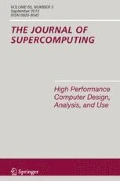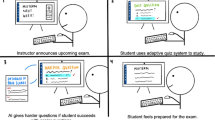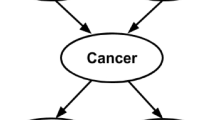Abstract
We present algorithms guiding the identification of student solution strategies in the Domain-Independent Adaptive Tutoring System (DIATS). The DIATS is a distributed computer-assisted instruction system with a prototype in the domain of psychiatric mental disorders. Problems are solved using differential diagnosis decision trees from the DMS-IV-TR. Student solution strategy identification is performed by the Response Analysis Unit of the modeler. The Domain-Independent Adaptive Tutoring System (DIATS) has a distributed architecture that combines shared-data and client-server styles.
Similar content being viewed by others
References
American Psychiatric Association, Diagnostic and Statistical Manual of Mental Disorders–DSM-IV-TR. APA, Washington, p. 943, 2000.
J. Brophy. Advances in research on teaching, Vols. 1, 2, 3. JAI Press, Connecticut, 1992.
P. Brusilovsky. Adaptive hypermedia: From intelligent tutoring systems to web-based education. In Proc. 5th Int’l Conf. on Intelligent Tutoring Systems, pp. 1–7, 2000.
R. R. Burton. Diagnosing bugs in a simple procedural skill. Intelligent Tutoring Systems. Academic Press, London, pp. 157–183, 1982.
W. J. Clancey. Knowledge-Based Tutoring: The GUIDON Program. MIT Press, 1987.
V. I. Daniels. Students with gifts and talents. Advances in Special Education, Vol. 15: Effective Education for Learners with Exceptionalities, pp. 325–348, 2003.
J. Fleitas. Educating children and youth with serious medical conditions: perils and potential. Advances in Special Education, Vol. 15: Effective Education for Learners with Exceptionalities, pp. 283–298, 2003.
J. E. Gilbert and C. Y. Han. Arthur: Adapting instruction to accommodate learning style. In Proc. of WebNet’99, World Conf. on the World-Wide Web and the Internet. Honolulu, pp. 433–438, 1999.
J. R. Graham, MMPI-2: Assessing personality and psychopathology. Oxford University Press, New York, p. 510, 2000.
W. L. Johnson. Understanding and debugging novice programs. Artificial Intelligence, 42(1):51–97, 1990.
R. Joshua, The psychiatrist’s assistant: Capturing a DSM-IV decision tree in an expert system. In Proc. Int’l Conf. on Artificial Intelligence, Las Vegas, pp. 102–107, 1999.
R. Joshua and J. L. Beiko. Psychiatrica: Combining DSM-IV-TR and MMPI-2 diagnostic criteria to accurately profile patients. University of Calgary: Ongoing Project, 2004.
R. Joshua and D. H. Scuse. An improved Dalal coherencist belief revision scheme. In Proc. IASTED/ISMM Int’l Conf. on Intelligent Management Systems, Washington, D.C., pp. 195–202, 1996.
R. Joshua and D. H. Scuse. Discovering misconceptions in a distributed pedagogical system. Submitted. 2004.
H. S. Nwana. An approach to developing intelligent tutors in mathematics. Computers educ., 20(1):27–43, 1993.
C. L. Paris. Tailoring object descriptions to a user’s level of expertise. Computational Linguistics, 14(3):64–78, 1988.
L. Sperry. Handbook of Diagnosis and Treatment of DSM-IV-TR Personality Disorders. Brunner Routledge, New-York, p. 292, 2003.
R. L. Spitzer (Ed.), DSM-IV-TR Casebook: A Learning Companion to the Diagnostic and Statistical Manual of Mental Disorders, 4th ed., Text Revision. APA, Washington, p. 576, 2002.
B. Woolf. Hypermedia in education and training. Artificial Intelligence and Intelligent Tutoring Systems: Knowledge-Based Systems for Teaching and Learning. Ellis Horwood, London, pp. 97–109, 1992.
Author information
Authors and Affiliations
Corresponding author
Rights and permissions
About this article
Cite this article
Joshua, R., Scuse, D.H. Modeling Beliefs and Solution Strategies in a Distributed Learning System. J Supercomput 34, 27–39 (2005). https://doi.org/10.1007/s11227-005-0283-2
Issue Date:
DOI: https://doi.org/10.1007/s11227-005-0283-2




